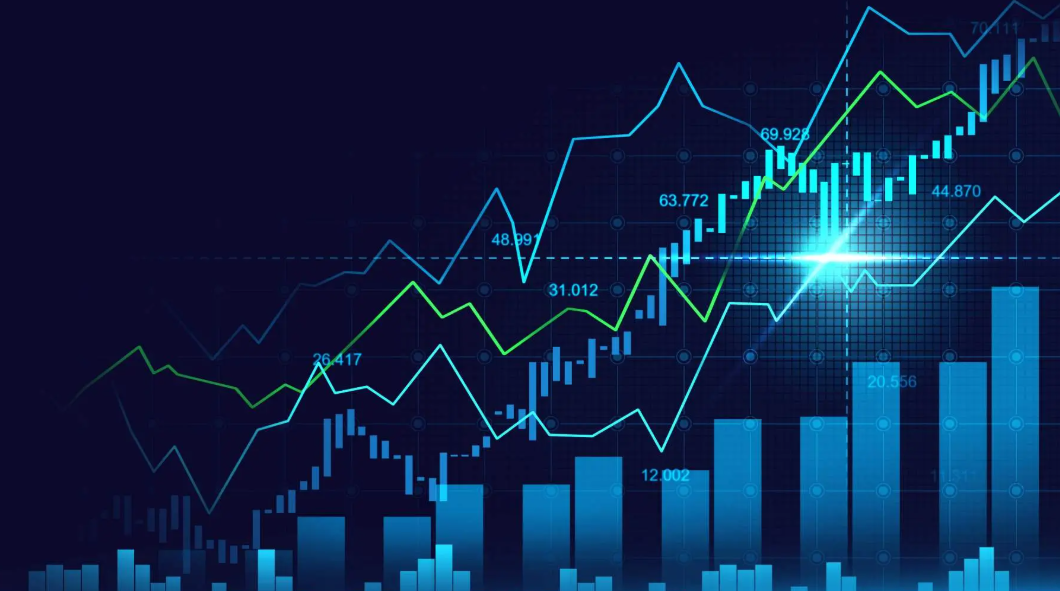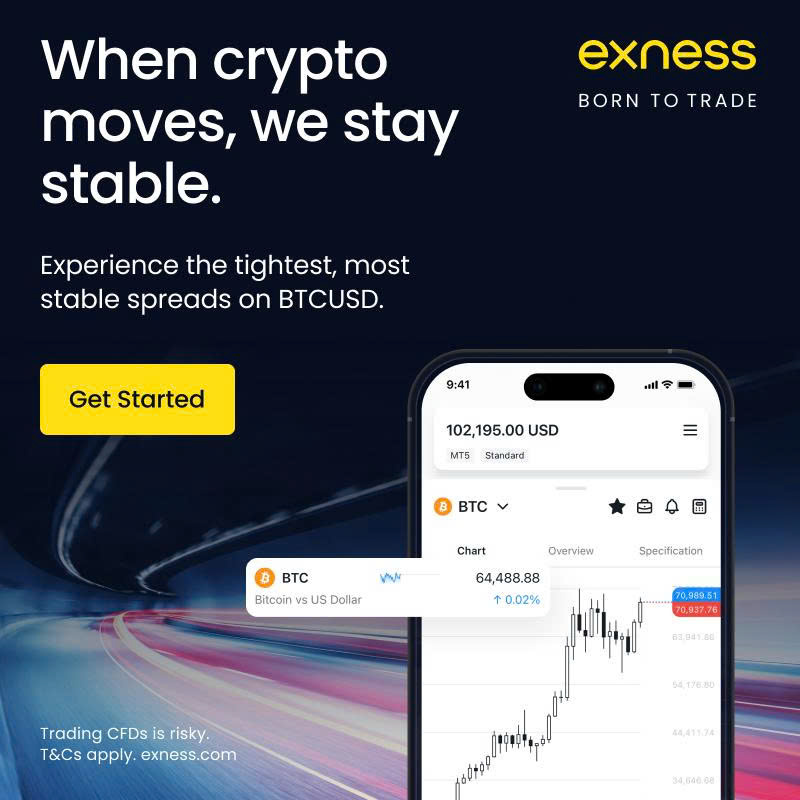
8 minute read
How Much to Learn Forex Trading in Nigeria?
Forex trading has gained significant popularity in Nigeria, with many individuals seeking to tap into the global financial markets to create wealth. However, one of the most common questions for beginners is, “How much to learn forex trading in Nigeria?” This article provides a comprehensive guide to the costs involved, from education to tools and practical tips, while ensuring you make informed decisions. Whether you're a complete novice or someone looking to refine their skills, this guide is tailored to help you navigate the forex learning journey in Nigeria.
Top 4 Best Forex Brokers in Nigeria
1️⃣ Exness: Open An Account or Visit Brokers 🏆
2️⃣ XM: Open An Account or Visit Brokers 💥
3️⃣ JustMarkets: Open An Account or Visit Brokers ✅
4️⃣ Quotex: Open An Account or Visit Brokers 🌐
Why Learn Forex Trading in Nigeria?
Before diving into the costs, it’s essential to understand why forex trading is appealing in Nigeria. The foreign exchange market is the largest financial market globally, with a daily trading volume exceeding $7 trillion. For Nigerians, forex trading offers an opportunity to earn in foreign currencies like USD, GBP, or EUR, which can be particularly valuable given the naira’s volatility. Additionally, forex trading requires minimal startup capital compared to other businesses, making it accessible for many.
However, success in forex trading demands knowledge, discipline, and the right tools. Learning forex trading is not free, but the costs vary depending on your approach. Let’s break down the expenses involved in learning forex trading in Nigeria.
1. Cost of Forex Education
The foundation of successful forex trading is education. Without proper knowledge, you risk losing money due to uninformed decisions. In Nigeria, there are several ways to learn forex trading, each with different costs.
a. Online Courses and Tutorials
Online courses are a popular choice for beginners due to their affordability and flexibility. Platforms like Udemy, Coursera, and Babypips offer forex trading courses ranging from free to premium options. In Nigeria, the cost of paid online courses typically ranges from ₦5,000 to ₦50,000 ($3–$30), depending on the platform and course depth.
Free Resources: Websites like Babypips provide a comprehensive “School of Pipsology” for free, covering everything from forex basics to advanced strategies. YouTube channels, such as those by Nigerian traders like Uche Paragon, also offer free tutorials.
Paid Courses: Premium courses on platforms like Udemy or local Nigerian forex academies may charge ₦10,000–₦50,000 for structured learning with mentorship.
b. Local Forex Training Programs
In Nigeria, forex training academies and seminars are common, especially in cities like Lagos, Abuja, and Port Harcourt. These programs often include in-person or virtual classes led by experienced traders. The cost of local forex training can range from ₦50,000 to ₦500,000 ($30–$300), depending on the program’s duration and reputation.
Pros: Personalized guidance, networking opportunities, and hands-on practice.
Cons: Higher costs and the risk of scams from unverified trainers. Always research the trainer’s credentials and reviews before enrolling.
c. Books and E-books
Books are an affordable way to learn forex trading. Titles like Currency Trading for Dummies or The Little Book of Currency Trading are available on Amazon or local bookstores for ₦5,000–₦20,000 ($3–$12). E-books are often cheaper, costing as little as ₦2,000–₦10,000.
Tip: To ensure E-E-A-T compliance, choose resources from reputable authors or platforms with proven expertise in forex trading.
2. Technology and Tools
Learning forex trading requires access to specific tools, such as a reliable device, internet connection, and trading platforms. These costs are unavoidable but can be managed based on your budget.
a. Device (Laptop or Smartphone)
To practice forex trading, you’ll need a device to access trading platforms and educational resources. A mid-range laptop costs ₦150,000–₦400,000 ($90–$240), while a decent smartphone for mobile trading costs ₦80,000–₦200,000 ($50–$120). If you already own a device-portalbe device, this cost may not apply.
b. Internet Connection
Nigeria’s internet costs vary by provider and data plan. On average, a monthly data plan for consistent trading and learning can cost ₦5,000–₦15,000 ($3–$9). Reliable internet is crucial to avoid disruptions during trading.
c. Trading Platforms and Software
Most forex brokers offer free trading platforms like MetaTrader 4 (MT4) or MetaTrader 5 (MT5). However, some advanced charting tools or signal services may require subscriptions, costing ₦5,000–₦50,000 ($3–$30) monthly.
Tip: Start with free platforms like MT4 to minimize initial costs while learning.
3. Practice Trading (Demo Accounts)
A critical part of learning forex trading is practicing with a demo account, which simulates real trading without risking money. Demo accounts are free and offered by most forex brokers, such as XM, FXTM, and HotForex, which are popular in Nigeria. While there’s no direct cost, you’ll need to invest time—typically 3–6 months—to develop and test your trading strategies.
Why It’s Important: Demo trading helps you understand market dynamics, technical analysis, and risk management without financial loss.
4. Initial Trading Capital
While not directly a cost of learning, starting to trade with real money is a natural progression. In Nigeria, many brokers allow you to start with as little as $10 (₦16,000). However, experts recommend a minimum of $100–$500 (₦160,000–₦800,000) to practice proper risk management.
Micro Accounts: Ideal for beginners, allowing trading with small lot sizes.
Risk Management: Never risk more than 1–2% of your capital per trade to minimize losses while learning.
Note: Avoid brokers promising unrealistic returns, as they may be scams. Choose regulated brokers with a strong reputation in Nigeria.

✅ Trade with Exness now: Open An Account or Visit Brokers 👈
5. Mentorship and Community
Joining a forex trading community or working with a mentor can accelerate your learning. In Nigeria, forex communities on platforms like Telegram, WhatsApp, and X offer free or low-cost membership (₦1,000–₦10,000 monthly). These groups provide market insights, trade signals, and support.
Mentorship from an experienced trader can cost ₦50,000–₦200,000 ($30–$120) for personalized coaching. Ensure your mentor has a verifiable track record to avoid wasting money.
6. Hidden Costs to Watch Out For
When learning forex trading in Nigeria, be aware of hidden costs that could derail your budget:
Scams: Unscrupulous trainers or brokers may charge high fees for subpar services. Always verify credentials and read reviews.
Signal Services: Paid trading signals can cost ₦5,000–₦50,000 monthly but may not guarantee profits.
Emotional Costs: Trading losses due to lack of knowledge can be financially and emotionally draining. Stick to demo accounts until you’re confident.
How to Learn Forex Trading on a Budget
If you’re on a tight budget, here’s how to minimize costs while learning forex trading in Nigeria:
Leverage Free Resources: Use Babypips, YouTube, and free webinars to build foundational knowledge.
Start with a Demo Account: Practice trading without risking money.
Join Free Communities: Engage with Nigerian forex trading groups on X or Telegram for tips and support.
Invest in Affordable Tools: Use a basic smartphone or laptop and a budget-friendly internet plan.
Self-Education: Read free e-books or borrow forex trading books from libraries.
How Long Does It Take to Learn Forex Trading?
The time it takes to learn forex trading varies. Beginners can grasp the basics in 3–6 months with consistent study and practice. However, becoming a consistently profitable trader may take 1–2 years. The key is to focus on learning rather than rushing to trade with real money.
Choosing the Right Forex Broker in Nigeria
A reliable broker is crucial for your forex trading journey. Look for brokers regulated by reputable authorities like the FCA, CySEC, or ASIC. Popular brokers in Nigeria include:
XM: Low minimum deposit ($5) and user-friendly platforms.
FXTM: Offers educational resources and local support.
HotForex: Known for fast withdrawals and competitive spreads.
Cost Consideration: Some brokers charge commissions or spreads, which can affect your trading costs. Compare fees before choosing a broker.
Is Forex Trading Worth the Cost in Nigeria?
The cost of learning forex trading in Nigeria can range from ₦10,000 to ₦1,000,000 ($6–$600), depending on your approach. Free resources and demo accounts make it possible to start with minimal investment, while premium courses and tools can increase costs. The potential rewards, however, can be significant if you approach trading with discipline and continuous learning.
Key Takeaways:
Start with free or low-cost resources to build knowledge.
Practice with a demo account before trading with real money.
Choose a reputable broker and avoid scams.
Invest in reliable technology to support your trading.
Conclusion
Learning forex trading in Nigeria is an achievable goal with a range of costs to suit different budgets. By leveraging free resources, practicing with demo accounts, and choosing reputable brokers, you can minimize expenses while building expertise. The key to success lies in patience, discipline, and continuous learning. Whether you invest ₦10,000 or ₦500,000, the knowledge and skills you gain will determine your success in the forex market.
✅ Trade with Exness now: Open An Account or Visit Brokers 👈
Read more:

